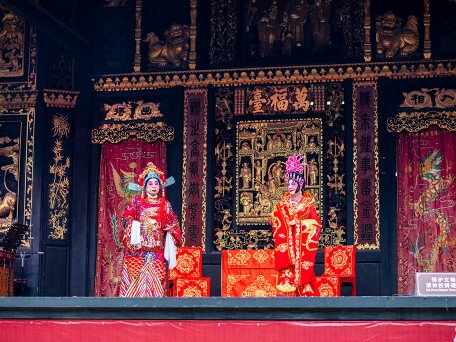National education as cultural education: Developing students’ Chinese cultural identity with learning and teaching Cantonese opera in Hong Kong and Guangzhou
- 項目計劃:
- 優配研究金
- 項目年份:
- 2019/2020
- 項目負責人:
- 梁寶華教授

As Cantonese opera is an art form replete with Chinese cultural elements, and thus suitable for promoting Chinese cultural identity, this study aims: 1) to investigate the current state regarding teaching and learning Cantonese opera in the schools of Hong Kong and Guangzhou, 2) to examine the extent to which variables such as teachers’ musical preference and teacher education in Hong Kong and Guangzhou ... ...
Since the return of Hong Kong’s sovereignty to China in 1997, Cantonese opera has been included in the SAR's school music curriculum. Recently, the People’s Government of Guangdong Province (2017) issued an ordinance to promote the transmission of the traditional music genre through all channels, including school education. Cantonese opera has been officially included in the policy agenda of both Hong Kong and mainland China, to preserve it and to promote cultural education in schools. Hong Kong people have been facing a challenge of identities. The initiative to develop Moral and National Education as compulsory subjects in schools in 2012 was opposed by younger generations. This was one of the reasons for the protest event “Occupy Central”. At present in the Hong Kong community, there appears to be conflict between younger generations striving for their “Hongkongese” identity, and another group that embraces and defends their Chinese national identity. A broad-based concept of national education has been proposed, which is a comprehensive model that should include national, political, social and cultural identity. As Cantonese opera is an art form replete with Chinese cultural elements, and thus suitable for promoting Chinese cultural identity, this study aims: 1) to investigate the current state regarding teaching and learning Cantonese opera in the schools of Hong Kong and Guangzhou, 2) to examine the extent to which variables such as teachers’ musical preference and teacher education in Hong Kong and Guangzhou may contribute to the teaching of Cantonese opera in music classes; and 3) to examine the extent to which learning Cantonese opera in schools may contribute to the development of Chinese cultural identity in students. Based on the Social Identity Theory, this study is in two phases employing a sequential explanatory mixed-method design. Phase I will be a questionnaire survey to investigate the current ways in which Cantonese opera is taught in schools. A hardcopy/online questionnaire will be designed and disseminated to all primary and secondary schools in Hong Kong and Guangzhou for music teachers. Phase II is a multiple-case study in which eight schools from both cities will be involved. Researchers will observe the classes over three months in each school and interview teachers and students for feedback and reflection on students’ development of Chinese cultural identity. This study will reflect the current situation in terms of teaching and learning of the genre, which will provide insights for future development.








